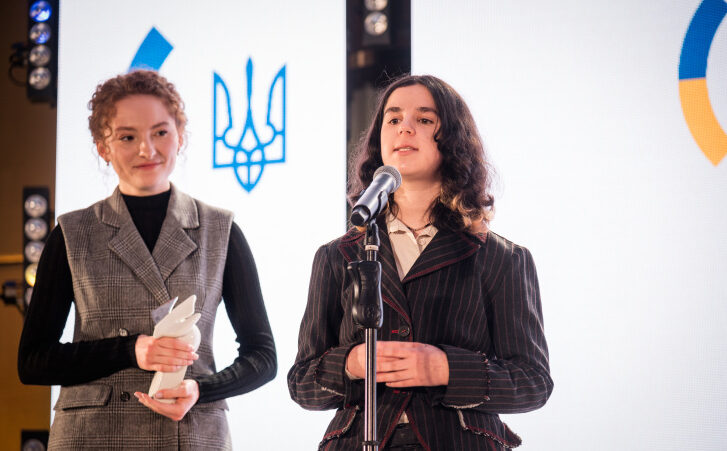
YEAs sharing experience: Three basic tips on how to carry out interviews
My colleague Viktor Savinok and I are currently preparing an article for the German scientific journal “Ukraine-Analysen”. We are both part of the Young European Ambassadors’ initiative, through which we were able to get to know each other and eventually become friends.
In light of the article, we are conducting a series of interviews with high-level officials both from EU and other international institutions. The article investigates the relationship between the EU-Ukraine Association and Partnership Agreement and Ukraine’s ongoing decentralization agenda. We are curious to determine whether these policies have a driving or hindering effect on the decentralization process in the country. In order to embed our thesis in a practical context, we need as much empirical data as possible. As such, the experts we are interviewing are helping us to find the answers to our questions. Our first interviews have already demonstrated the importance of keeping our research questions flexible. Indeed, allowing yourself to embrace experts’ suggestions and be open to different viewpoints can only help to improve your paper.
Here are some tips from our experience to help you get ready.
- Prepare your questionnaire and do your research
After your abstract is ready and you feel knowledgeable enough about your topic, start by preparing a structured questionnaire containing a minimum of 8-10 and maximum of 18-20 questions. Whatever the format of your interviews (whether through Skype or e-mail) a solid questionnaire will be your main point of reference throughout the interview and an aid should you lose track of the conversation. Be prepared to send the questionnaire to your interviewee and brief them beforehand to allow them to get ready. Make sure to know some facts about the person’s background, their current position and concrete expertise on the topic. “Soft information” like this can come in handy if your interview starts slowing down at any point, whilst showing your interlocutor that you’re well prepared.
- During the interview – take notes and be open to alternative routes
Interviews with high-level experts aren’t the time to lean back and listen. Put yourself in the shoes of your interview partner – they are an expert on a specific topic and have a lot of information to share with you. Despite your own expertise on the topic and the fact that you have extensively researched it, the expert knows more than you do. You must be ready to take notes on a piece of paper, especially if you aren’t using a voice recorder during the interview. If you use a voice recorder, bring it with you to the interview, but make sure to ask for your interviewee’s consent. If you are taking notes, be mindful that you must later remember the content of the interview.
Prior to conducting the interview, it is highly recommended to first do a simulation. Practicing allows you to anticipate the potential questions and answers during the real interview. By doing so, you will be able to identify “weak spots” in your interviewing style, shedding light on situations you might not be prepared for (such as touching upon an unfamiliar topic, but one that might greatly impact the conversation). On the other hand, don’t take anything for granted – a simulation stays a simulation and is no guarantee for the success of your interview. If the interviewee answers your first question in a profoundly different fashion than how you expected them to, the structure of your interview might be totally affected. But don’t forget it’s okay to return at any point to unanswered questions (e.g. at the end of your interview), if you feel this is needed to have a complete interview.
- After the interview – check your notes again and stay in touch
Finally, after you’ve finished your interview and your interviewee has left, quickly skim through your notes to see whether you understand everything you have written down. Believe it or not, it is common to struggle with your own handwriting after an interview. You’ve probably had an intense conversation, which has resulted in hap-hazard notes. Therefore, make sure to screen your notes for any ambiguities or gaps to get a better grasp of the overall picture.
Last but certainly not least, ask your expert for a business card right before they leave (if you’ve met them in person). This shows your interest in them and is a good way to stay in touch beyond the interview.
Philipp Brugner from Austria and Viktor Savinok from Ukraine
LATEST

Building Europe: Poland’s experience of joining the European Union and lessons for Ukraine

World Health Day 2024: My Health, My Right

EUREKA MEETS EUROPE – opportunities to develop and study. My experience

Can you wear pink in the workplace?

Go where your deepest fears lie: finding the courage to overcome gender barriers in STEM
More campaign pages:
Interested in the latest news and opportunities?
This website is managed by the EU-funded Regional Communication Programme for the Eastern Neighbourhood ('EU NEIGHBOURS east’), which complements and supports the communication of the Delegations of the European Union in the Eastern partner countries, and works under the guidance of the European Commission’s Directorate-General for Neighbourhood Policy and Enlargement Negotiations, and the European External Action Service. EU NEIGHBOURS east is implemented by a GOPA PACE-led consortium. It is part of the larger Neighbourhood Communication Programme (2020-2024) for the EU's Eastern and Southern Neighbourhood, which also includes 'EU NEIGHBOURS south’ project that runs the EU Neighbours portal.

The information on this site is subject to a Disclaimer and Protection of personal data. © European Union,